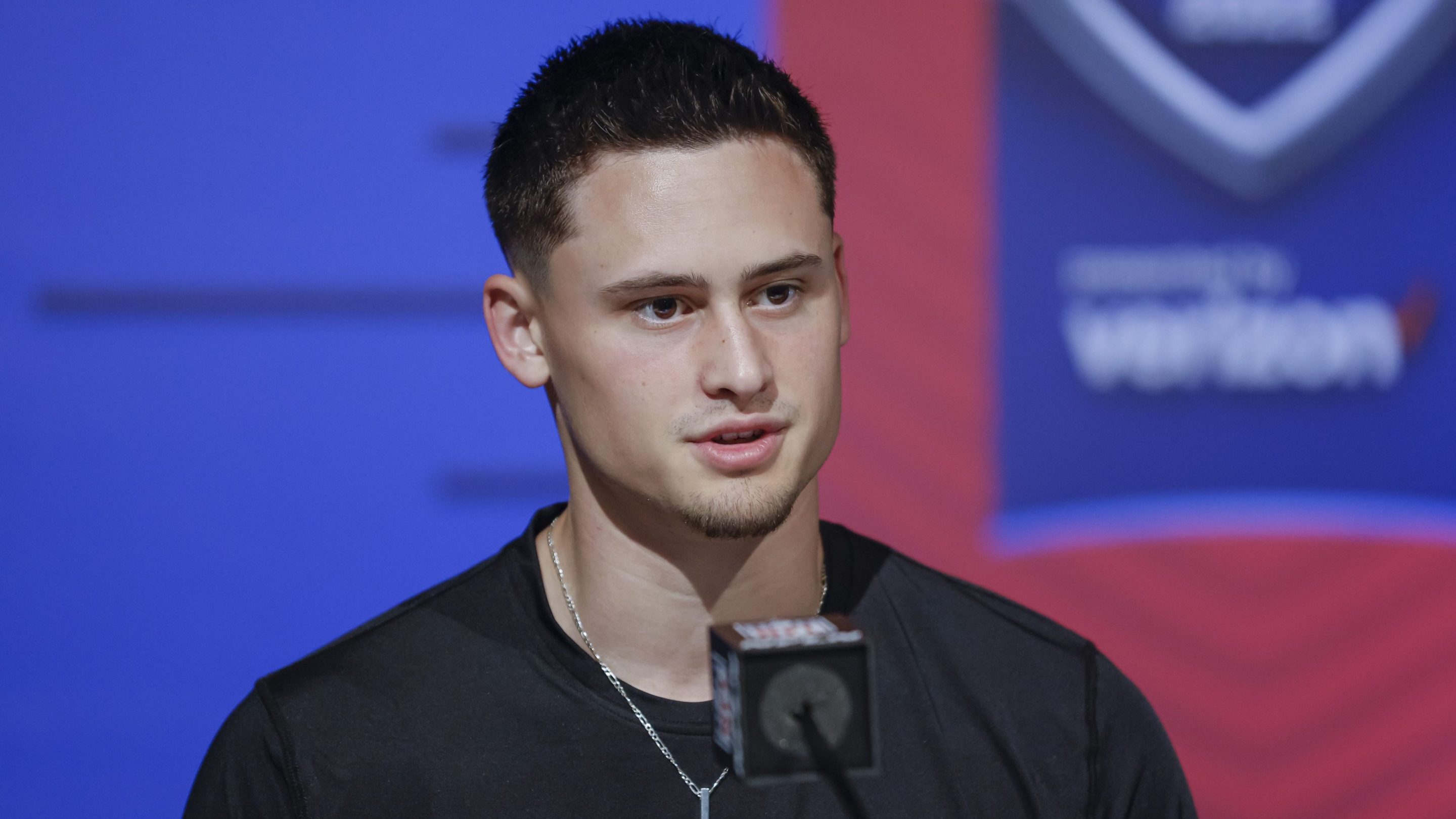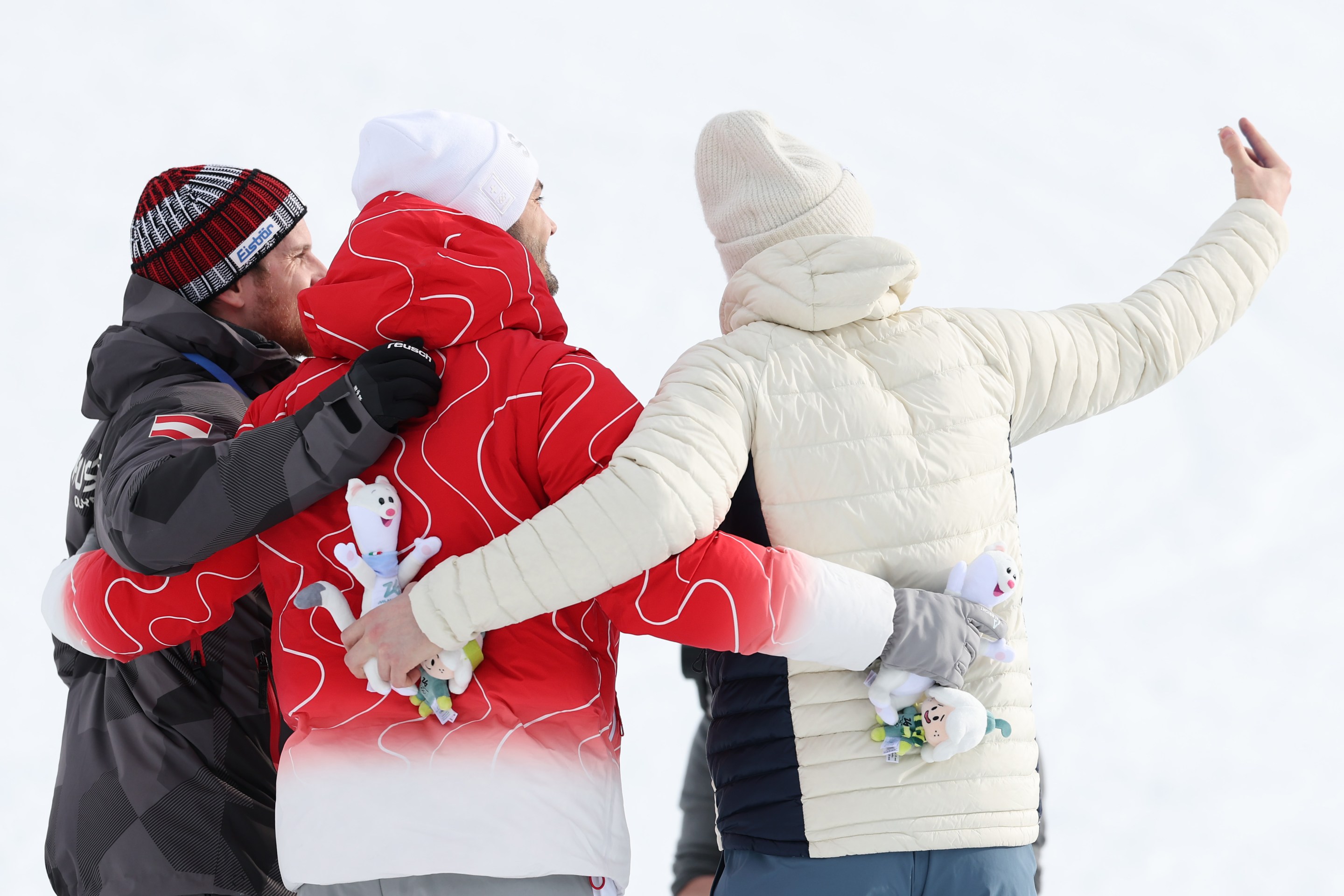The L.os Angeles Times reported Thursday night that a woman had filed a lawsuit saying she was gang-raped when she was 17 years old by three San Diego State football players at a Halloween party in 2021. Those players included, according to her complaint, Bills rookie punter Matt Araiza, as well as two other San Diego State football players, Zavier Leonard and Nowlin "Pa'a" Ewaliko. The woman filed her lawsuit under the name Jane Doe, with the court's permission.
Araiza is currently considered the Bills starting punter, earning the starting job after they cut their 2021 punter on Monday. Leonard is on the 2022 San Diego State roster. Ewaliko is no longer with the program. Attorneys for Leonard and Ewaliko declined to comment on Thursday to the Times. A lawyer for Araiza, Kerry Armstrong, said the lawsuit was false.
The lawsuit, filed in San Diego Superior Court, said that Doe was in high school at the time, and the gang rape happened at an off-campus Halloween party in the early hours of Oct. 17, 2021. According to her lawsuit, Doe and three friends had been at a few other parties that night before they saw the address for this party when a friend posted it on Snapchat. They decided to go. Doe said in her lawsuit that she was "observably intoxicated" when she arrived.
Early on, Doe got separated from her friends, and Araiza approached her while she was in the backyard. She looked drunk, her lawsuit said, but Araiza still handed her another drink. She did not see Araiza pour the drink and, her lawsuit stated, she believes that the drink "not only contained alcohol, but other intoxicating substances." As they talked, she told Araiza she was in high school, so he "knew or should have known that Doe was a minor," according to the complaint.
At some point, Araiza led her to the side yard, where he told her to perform oral sex on him, which she did. He then pulled her up from the ground and penetrated her from behind with his penis, according to the lawsuit. Next, he took her inside the house and into a bedroom with at least three other men inside, including Ewaliko and Leonard.
From there, Doe said in her lawsuit that she was in and out of consciousness. But some of what she recalls are the men taking turns having sex with her, while she lied face down on the mattress, and later being flipped over so one man could force his penis into her mouth while another performed oral sex on her. She also recalled seeing a light in the periphery, "as if someone was taking a video using a cell phone," according to her complaint. She did not have her phone because, she said, it was taken away. A friend tried to get inside the house but, according to her lawsuit, an unknown person at the party stopped them.
Doe estimated this continued for about an hour and a half, until the party got broken up. The lawsuit said that Doe "stumbled out of the room bloody and crying." Her piercings had been pulled out, and she was bleeding from her vagina.
Doe immediately told her friends that she had been raped, according to her lawsuit. She stayed at a friend's house that night and, in the morning, they tried to piece together what happened. She used the Find My iPhone app to locate her phone, which was still inside the house on Rockford Drive. They went over, and a man answered the door. When Doe explained she had been there the night before, the man laughed and said "I know you were here last night," she recalled in her lawsuit. But he said her phone wasn't there, and they left without it. A day later, Oct. 18, Doe reported her case to San Diego police. She waited five hours until an officer talked to her, she said in her lawsuit. She also went to a hospital for a rape kit exam.
According to her lawsuit, San Diego police conducted "pretext" calls, which were recorded, with the men whom they believed were present in the room. In a call with Araiza, on Oct. 28, the lawsuit said that Araiza confirmed having sex with Doe and told her she should get tested for chlamydia. However, when Doe asked him directly, "And did we have actual sex?" Araiza dodged the question, replying, "I don't remember anything that happened that night," according to her complaint. Then he hung up.
Now, the criminal case is with prosecutors. On Aug. 5, the Times reported that the police had finished their nine-month investigation and turned the case over to the district attorney's office to decide if they would file criminal charges. Doe’s attorney, Daniel Gilleon, told the Times that police have not provided them with recordings of the pretext calls, or Doe's police report, or the results of the rape kit.
Though Araiza's name being public is new, the Times has been reporting on the San Diego State case since June. That month, the newspaper reported that university officials had learned about Doe's report just a few days after Oct. 17, 2021. Police told the university, and multiple reports came in through an anonymous reporting system, per the report. But the university didn't start any investigation or disciplinary process of its own. San Diego State said it didn't because police asked them to not do anything that would compromise their investigation. It finally launched a Title IX investigation last month, per the Times, after getting the OK from police.
Did the Bills know this when they drafted Araiza? Tim Graham at The Athletic reported that the Bills did not know about the case when they drafted Araiza—but they did find out last month and they did know when they cut their 2021 punter, Matt Haack, this week. And it's really common for teams to ask players during the draft process if have any "legal issues" that the team should know about.
Armstrong, Araiza's attorney, told Alaina Getzenberg of ESPN that he doesn't think his client told NFL teams about the investigation before the draft. "But he was forthcoming with the Bills, but I don't think it was until after he was drafted because he didn't know that this was ever going to go anywhere until the L.A. Times article came out, I think around, whatever it was, five or six weeks ago," Armstrong told ESPN.
If the Bills did know anything before then, they weren't saying. After the story was published by the Times on Thursday, the Bills released a statement that said they "conducted a thorough examination of this matter," but wouldn't be commenting.
Doe's lawyer, Dan Gilleon, is commenting. He told Graham that, after an email to Bills assistant general counsel Kathryn D’Angelo on July 31, he had a "a long phone call" with her but never heard back. On Friday, Gilleon shared screenshots of Doe's journal from around the time she said she was raped.
"A part of me can't help but feel guilty," she wrote, "and wonder if I could have prevented it."
The lawsuit can be read in full below.






